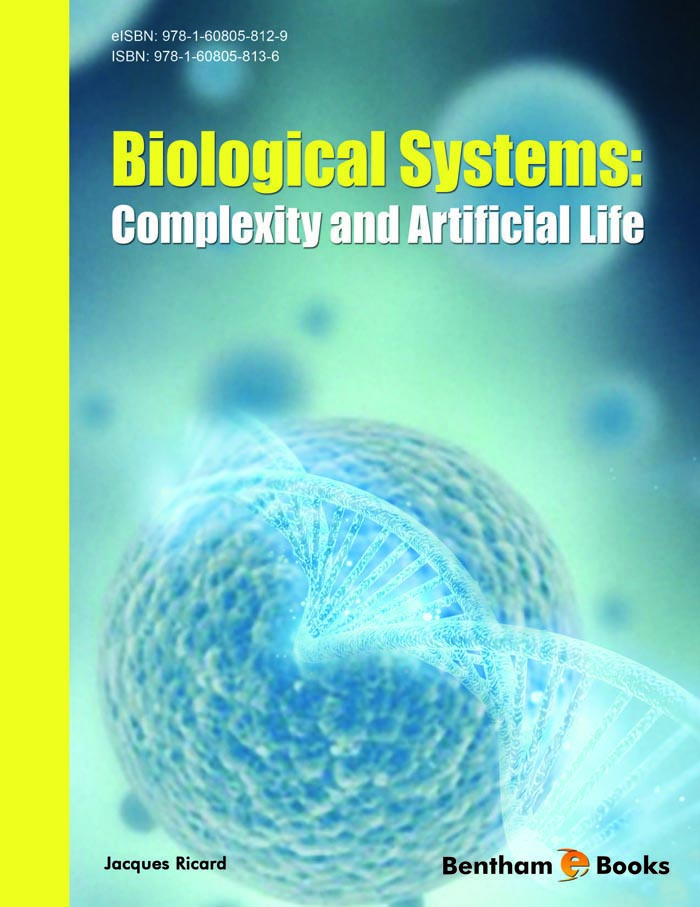For many years biology has been rooted in a reductionist attitude probably
derived from Descartes philosophy that consists in splitting the problems into
simple elements that should help solve these problems. These elements are
specific macromolecules, namely nucleic acids and proteins. For many years it
was, explicitly or implicitly, postulated that major biological problems could be
solved from the knowledge of structure and function of nucleic acids and proteins.
The term “molecular biology” clearly implied that it is possible to reduce
biological problems to molecular entities. In fact many difficulties arise when one
attempts at reducing biological problems to biomolecules. The main reason for
this difficulty is that any living organism is a complex system.
The concept of complex system has played a major role in contemporary science,
particularly in biology and social sciences. Complex systems display a number of
features that are stated below [1,2].
Complex systems are made up of a large number of elements in
interaction.
Such systems are not disordered but display a certain degree of order and
organization.
These systems display nonlinear effects and feedback loops.
From a thermodynamic viewpoint, a complex system usually operates
away from thermodynamic equilibrium and requires both matter and
energy to maintain its organization.
A complex system is in a dynamic state and possesses a history. Its
present state is determined by its past behaviour.
The interactions between the elements of the system take place over a
short range and are therefore local. These features and others have
already been mentioned earlier [1].
It is therefore possible to point out the differences between molecular and systems
biology. As briefly pointed out above, molecular biology attempts at understanding
properties of a living organism from the individual properties of some type of
biomolecules such as DNA, RNA and proteins. Systems biology explains the global
properties of the living organisms from the dynamic properties of systems of biomolecules. But a system, a network, of biomolecules can be more than a simple
set of macromolecules. It involves multiple interactions between its elements and
display the emergence of novel properties, that is properties that are “novel” relative
to the individual properties of the elements of the system. Put in other words, such
systems display emergence of properties that are not borne by any individual
element of the global system. It is evident then that the global properties of these
systems can only be studied with the help of mathematics which then appears an
unavoidable aspect of systems biology. In this line, it becomes possible to approach
some aspects of biological problems through the use of simple mechanistic models
of living systems and this approach can be considered some kind of systems biology.
Many biological problems can now be studied trough the concept of system. Two
books have been devoted to these problems [2, 3] and it is therefore useful, to use
some of these problems as a material to approach this field of complexity and
systems biology.
Acknowledgements
The author wishes to thank his wife Käty for her constant support as well as
Robin Coombes for carefully reading his manuscript.
Conflict Of Interest
The author confirm that, as far as he knows, the book content does not posses any
conflict of interest.
References
[1] Cilliers, P. Complexity and Postmodernism (1998), Routledge, London and New York.
[2] Ricard, J. Biological Complexity and the Dynamics of Life Processes.(1999), Elsevier,
Amsterdam, Lausanne, New York.
[3] Klipp, E, Liebermeister, W, Wierling, C, Kowald, A. Lehrach, H. and Herwig, R.(2010),
Systems Biology, Wiley-Blackwell.
Jacques Ricard
Honorary Director of the Jacques Monod Institute
CNRS, Paris cedex 5,
France
E-mail: Jkricard@aol.com

